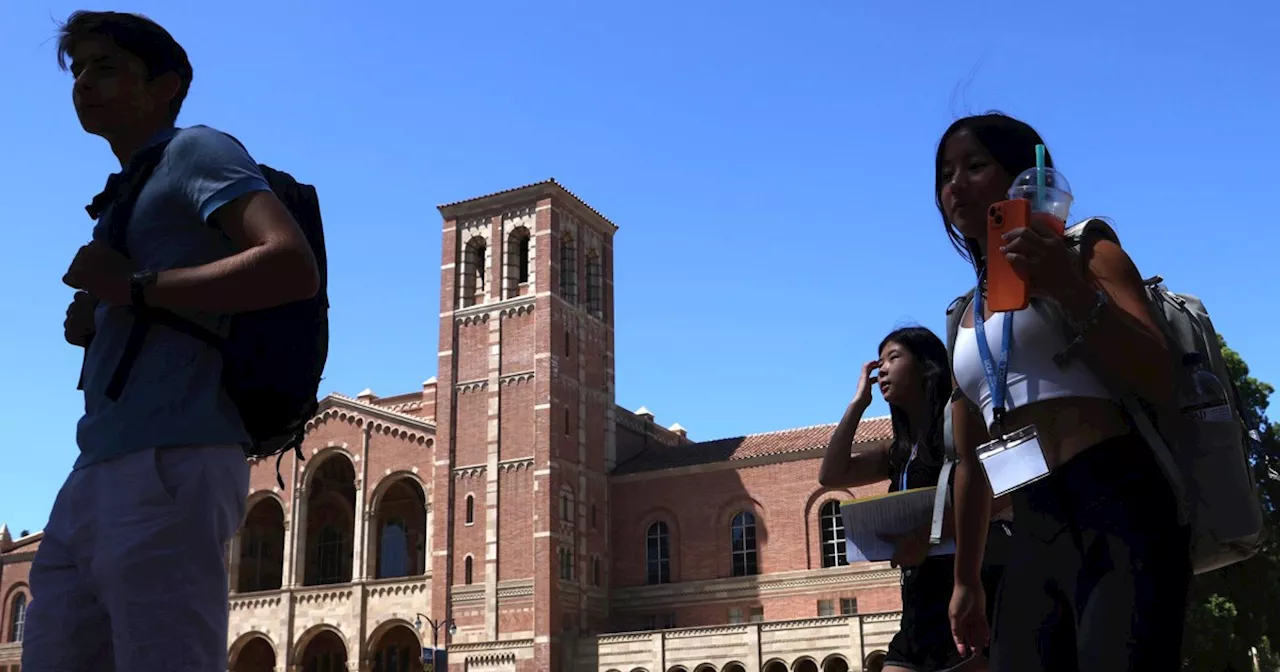The potential closure of the U.S. Department of Education by the Trump administration has sparked anxiety among 42 million federal student loan borrowers. This article explores the implications of such a move, including the future of student loan obligations, potential administrative challenges, and the impact on financial aid for both new and current students.
The Trump administration's exploration of closing parts or all of the U.S. Department of Education has ignited anxiety among the nation's 42 million federal student loan borrowers. The Education Department plays a crucial role in enabling millions of Americans to pursue higher education annually through loan underwriting and administering the country's staggering $1.6 trillion outstanding student debt.
Betsy Mayotte, president of The Institute of Student Loan Advisors, a non-profit organization dedicated to assisting borrowers with repayment, stated, 'The anxiety levels are pretty high for borrowers right now.' While closing the agency would necessitate an act of Congress, the Trump administration is reportedly considering an executive order that could suspend certain departmental functions, as reported by The Wall Street Journal. The President's campaign pledges included closing the department, with a White House spokesperson affirming, 'The President plans to fulfill a campaign promise by revaluating the future of the Department of Education.' Established in 1979 by former President Jimmy Carter, the U.S. Department of Education has faced previous threats to its existence, with former President Ronald Reagan advocating for its elimination and Trump, during his first term, proposing its merger with the Labor Department. Efforts by the Trump administration to dismantle the Education Department are likely to encounter significant criticism. A poll conducted by Data for Progress on behalf of the Student Borrower Protection Center and Groundwork Collaborative revealed that 61% of likely voters oppose the Trump administration's utilization of an executive order to abolish the Education Department, with only 34% expressing approval. This survey, involving 1,294 participants, was conducted between January 31st and February 2nd. The potential ramifications of these proposed changes for student loan borrowers are multifaceted. What would transpire with my student loans? Mayotte emphasized that even if the Education Department ceased to exist, student loan obligations would remain. 'Just because the entity that manages the loan changes, it in no way changes the terms,' she explained. She provided the analogy of mortgages, which frequently are sold to other companies, and noted that millions of student loan borrowers have recently experienced transfers of their accounts to alternative servicers. Mayotte posited that the Treasury Department would be the most suitable agency to assume the administration of student debt. Other potential candidates, according to a blog post by The National Association of Student Financial Aid Administrators, include the Justice Department or the Department of Labor. Meanwhile, some Republicans have expressed interest in privatizing the federal student loan system, according to higher education expert Mark Kantrowitz. This prospect has raised concerns among consumer advocates, who argue that students require additional safeguards that are not mandated for private lenders. Michele Shepard Zampini, senior director of college affordability at The Institute For College Access and Success, contends that the existing federal student loan system is already plagued by issues. Transferring the loan accounts of tens of millions of individuals to another agency would exacerbate these problems, she asserted. 'Borrowers and students need more stability, and this would create chaos,' Shepard Zampini stated. Shepard Zampini warned that financial aid for both new and current students could experience delays if the Education Department faced partial or complete closure. This could pose a significant challenge for families, as she acknowledged, 'People can't go to college without student loans, unfortunately.' Kantrowitz echoed this sentiment, emphasizing the detrimental impact of disruption, stating, 'Disruption is bad, very bad. During a transition, federal student aid might not become available for weeks or longer.'
STUDENT LOANS DEPARTMENT OF EDUCATION TRUMP ADMINISTRATION HIGHER EDUCATION FINANCIAL AID
United States Latest News, United States Headlines
Similar News:You can also read news stories similar to this one that we have collected from other news sources.
 Trump Administration Purges Education Department Employees Over DEI InvolvementPresident Trump's executive order to eliminate diversity, equity, and inclusion (DEI) positions has resulted in the leave of at least 50 employees at the Education Department. Contrary to the order's intent, most of these employees were not directly involved in DEI work but had participated in past initiatives, such as diversity training or affinity groups. This widespread purge suggests the administration aims to remove anyone associated with DEI, not just specific roles. Similar actions have occurred across federal agencies, with websites removing DEI language, the cessation of cultural celebrations like Black History Month, and the removal of DEI-themed artwork. Employment experts express concern that these actions will hinder the enforcement of civil rights laws.
Trump Administration Purges Education Department Employees Over DEI InvolvementPresident Trump's executive order to eliminate diversity, equity, and inclusion (DEI) positions has resulted in the leave of at least 50 employees at the Education Department. Contrary to the order's intent, most of these employees were not directly involved in DEI work but had participated in past initiatives, such as diversity training or affinity groups. This widespread purge suggests the administration aims to remove anyone associated with DEI, not just specific roles. Similar actions have occurred across federal agencies, with websites removing DEI language, the cessation of cultural celebrations like Black History Month, and the removal of DEI-themed artwork. Employment experts express concern that these actions will hinder the enforcement of civil rights laws.
Read more »
 Trump Administration Places Dozens of Education Department Workers on Paid LeaveDozens of workers at the Department of Education and Energy have been placed on paid leave as part of Trump's effort to eliminate DEI initiatives throughout the federal government. The workers include those who did not specifically work in diversity, equity and inclusion roles.
Trump Administration Places Dozens of Education Department Workers on Paid LeaveDozens of workers at the Department of Education and Energy have been placed on paid leave as part of Trump's effort to eliminate DEI initiatives throughout the federal government. The workers include those who did not specifically work in diversity, equity and inclusion roles.
Read more »
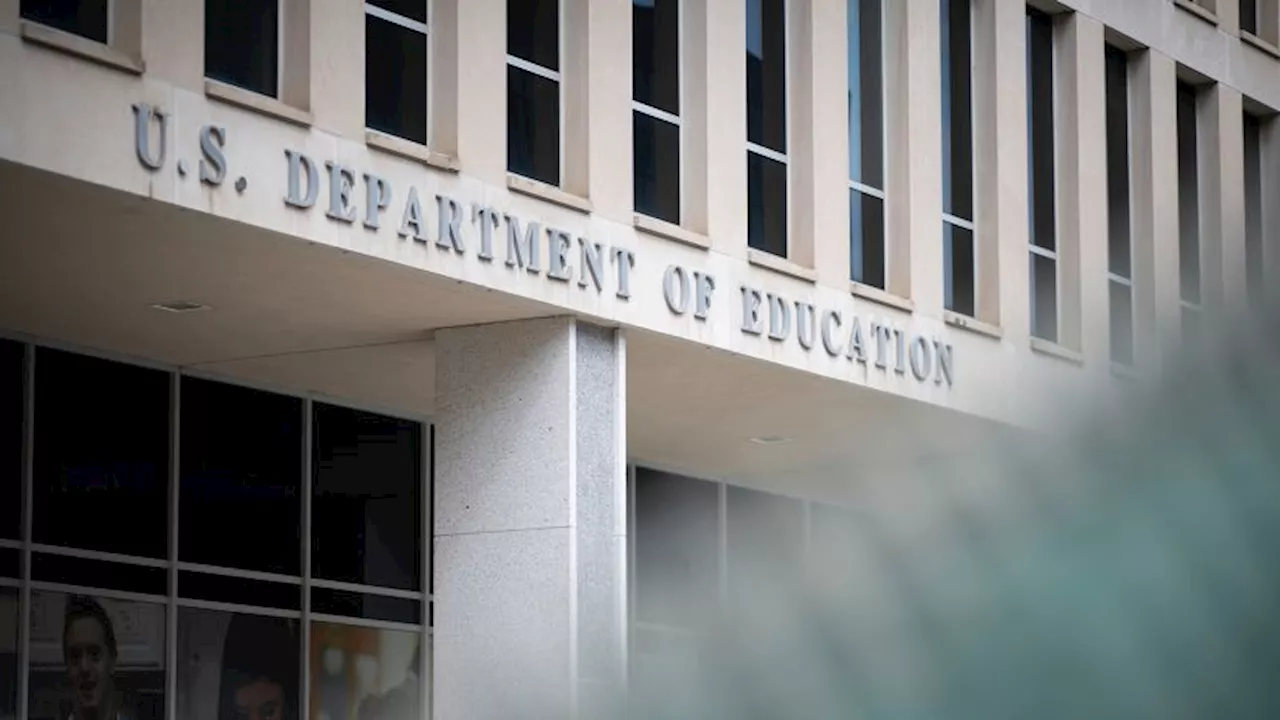 Education Department employees placed on paid leave as part of Trump administration’s DEI purgeDozens of employees at the Education Department were placed on paid administrative leave Friday as part of the Trump administration’s larger effort to rid the federal workforce of employees associated with diversity, equity, inclusion and accessibility efforts, two sources familiar with the move told CNN.
Education Department employees placed on paid leave as part of Trump administration’s DEI purgeDozens of employees at the Education Department were placed on paid administrative leave Friday as part of the Trump administration’s larger effort to rid the federal workforce of employees associated with diversity, equity, inclusion and accessibility efforts, two sources familiar with the move told CNN.
Read more »
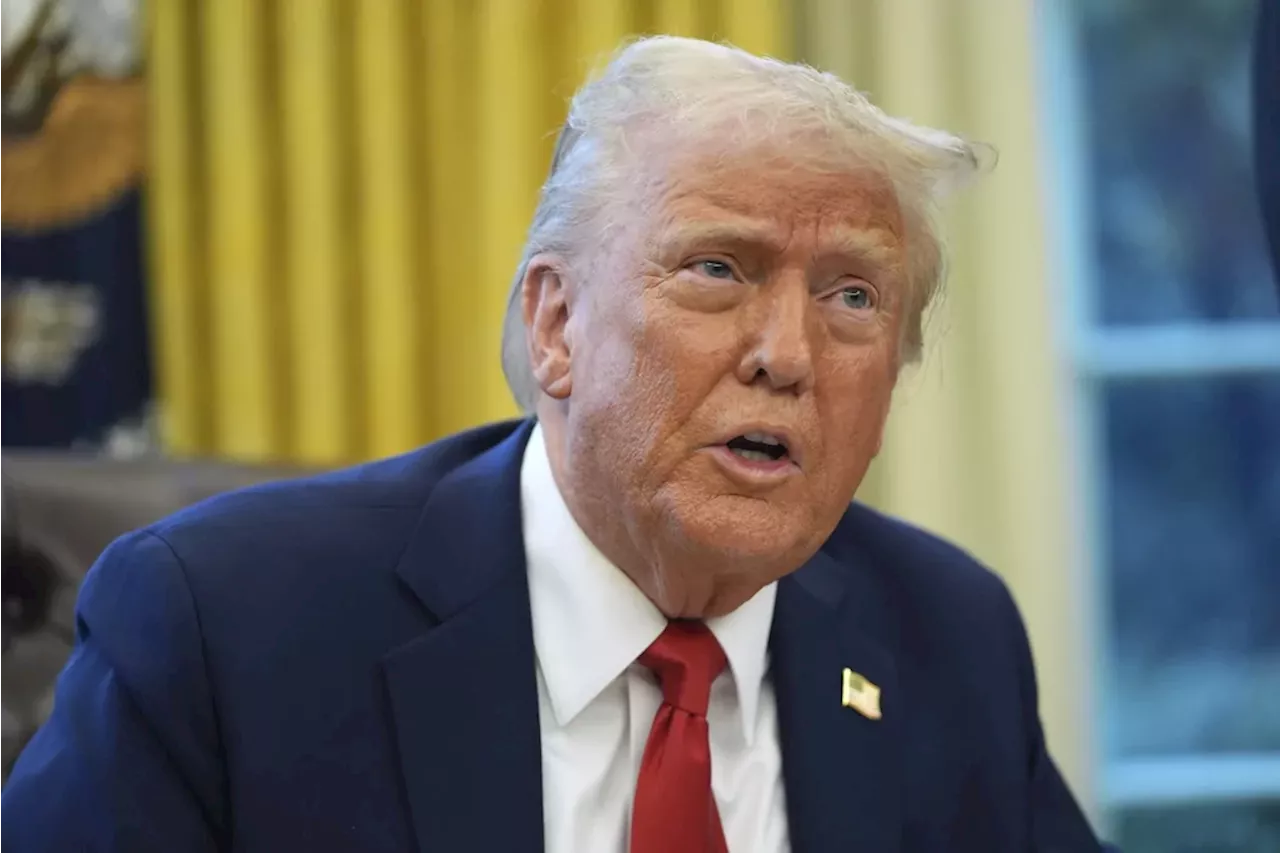 Trump Administration Considers Dismantling Department of EducationThe Trump administration is exploring the possibility of dismantling the Department of Education, either through an executive order or by urging Congress to abolish it. The plan aims to reduce the department's functions and redirect them to other agencies, reflecting a long-held conservative ambition. However, the move faces political risks and opposition from those who argue that the department's problems can be addressed through reforms or increased funding.
Trump Administration Considers Dismantling Department of EducationThe Trump administration is exploring the possibility of dismantling the Department of Education, either through an executive order or by urging Congress to abolish it. The plan aims to reduce the department's functions and redirect them to other agencies, reflecting a long-held conservative ambition. However, the move faces political risks and opposition from those who argue that the department's problems can be addressed through reforms or increased funding.
Read more »
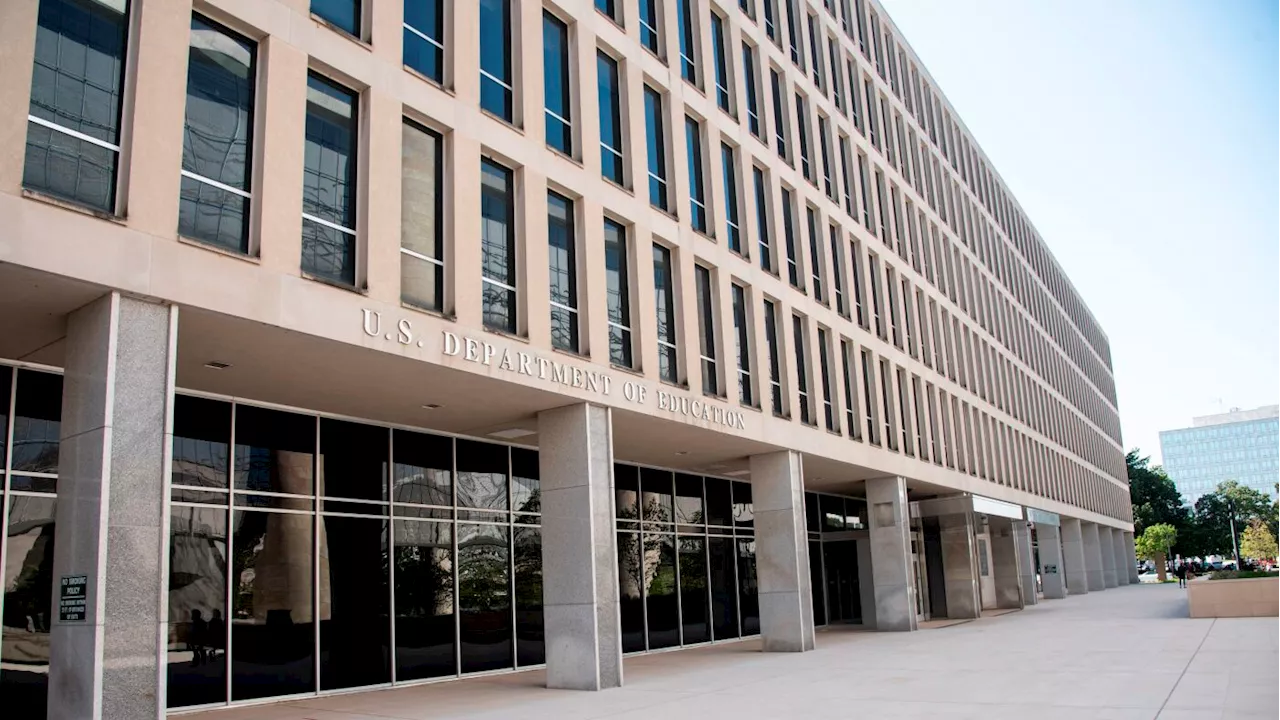 Trump Administration Eyes Dramatic Cuts to Education DepartmentThe Trump administration is exploring significant cuts to programs and staff at the U.S. Department of Education, potentially including executive action to shutter department programs not protected by law and calling on Congress to close the department entirely. The move comes after the administration placed dozens of Education Department staff on paid administrative leave with little explanation.
Trump Administration Eyes Dramatic Cuts to Education DepartmentThe Trump administration is exploring significant cuts to programs and staff at the U.S. Department of Education, potentially including executive action to shutter department programs not protected by law and calling on Congress to close the department entirely. The move comes after the administration placed dozens of Education Department staff on paid administrative leave with little explanation.
Read more »
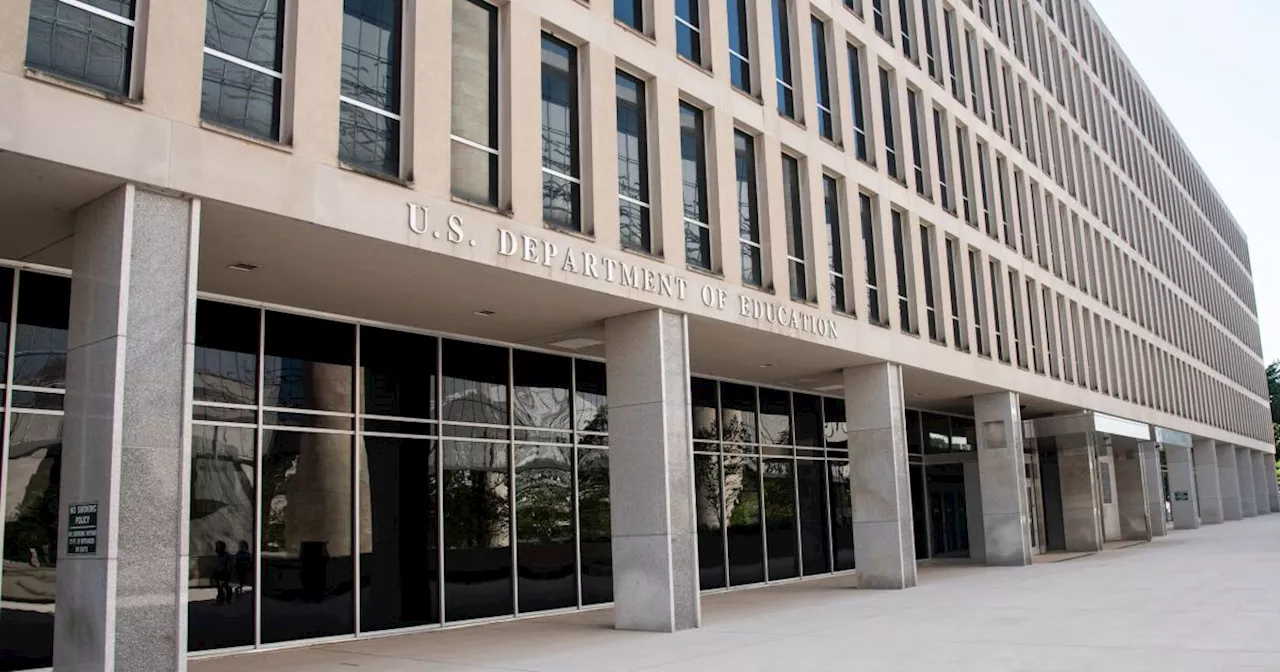 Trump Administration Explores Dramatic Cuts to Education DepartmentThe Trump administration is considering significant cuts to the U.S. Department of Education, potentially including executive action to close unprotected programs and a call to Congress for full departmental closure. Dozens of staff have been placed on paid administrative leave, raising concerns among department employees.
Trump Administration Explores Dramatic Cuts to Education DepartmentThe Trump administration is considering significant cuts to the U.S. Department of Education, potentially including executive action to close unprotected programs and a call to Congress for full departmental closure. Dozens of staff have been placed on paid administrative leave, raising concerns among department employees.
Read more »
